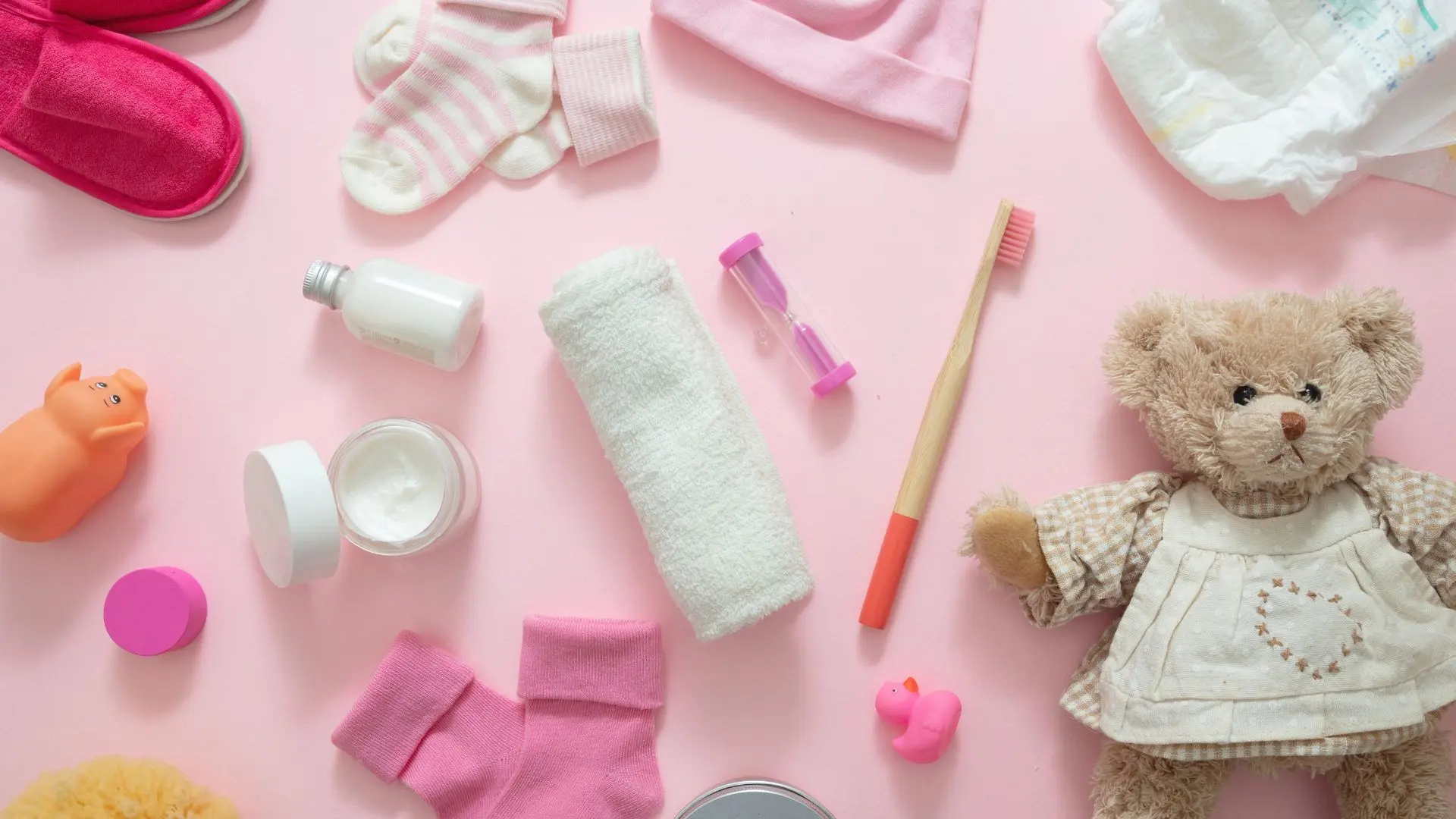Don’t make these mistakes when you’re sick with a newborn! Learn the top 10 pitfalls to avoid, and keep your baby safe and sound.

When you’re sick with a newborn, life can feel overwhelming. The demands of caring for a tiny human are already immense, but when you add illness into the mix, it can feel nearly impossible to manage.
But here’s the good news: you’re not alone in this. Many parents face this challenge, and with the right knowledge, you can navigate it effectively, keeping both you and your baby safe.
In this blog, we’ll explore the critical mistakes to avoid when you’re sick with a newborn.
What Not to Do When Sick with a Newborn?
1. Ignoring Your Symptoms
It’s easy to push your symptoms aside when you’re sick with a newborn. After all, your baby needs constant attention, and it might feel like there’s no time for you to rest or seek medical help. But ignoring your symptoms can be one of the most dangerous things you do.

Minor symptoms can quickly escalate into more serious conditions if left untreated. For example, what starts as a common cold could turn into a severe respiratory infection. And when you’re not at your best, your ability to care for your newborn diminishes, putting them at risk as well.
Moreover, postpartum vulnerabilities make new mothers particularly susceptible to illness. Your body is still recovering from childbirth, and your immune system may be weakened. Regular check-ins with your healthcare provider are essential, even if your symptoms seem minor. Your health directly impacts your baby’s well-being, so don’t hesitate to prioritize yourself.
2. Neglecting Hygiene
When you’re sick with a newborn, hygiene becomes more critical than ever. The germs that might be relatively harmless to you can pose a serious threat to your baby’s delicate immune system. But in the haze of illness and fatigue, it’s easy to overlook the basics of hygiene.
Handwashing is your first line of defense. Make it a habit to wash your hands frequently, especially before touching your baby, their bottles, or any of their toys. Using soap and warm water for at least 20 seconds can significantly reduce the risk of spreading germs.
Wearing a mask is another essential precaution. It might feel uncomfortable or unnecessary, but it’s one of the most effective ways to prevent transmitting airborne germs to your newborn. Remember, even a mild cough or sneeze can carry pathogens that could make your baby sick.
Sterilizing your baby’s environment is equally important. Regularly clean toys, bottles, and surfaces that your baby comes into contact with. Avoid close contact like kissing or cuddling, as much as it pains you until you feel better. These small steps can make a big difference in keeping your baby safe.
3. Avoiding Rest
As a parent, you’re conditioned to put your baby’s needs first, often at the expense of your own health. But when you’re sick with a newborn, avoiding rest can be more harmful than helpful.
Overexerting yourself when you’re sick can lead to a longer recovery time, or worse, a deterioration in your condition. Your body needs rest to heal, and without it, you may find that your illness lingers longer than necessary, draining your energy and patience.
Fatigue also impacts your ability to care for your baby. When you’re exhausted, you’re more likely to make mistakes—like missing a feeding, misjudging the temperature of a bottle, or even dropping something important. These mistakes can be dangerous for your baby and add to your stress.
Creating a rest-friendly environment is key. This might mean setting up a comfortable space where you can keep an eye on your baby while lying down, or arranging for someone to take over baby duties for a few hours so you can sleep. Balancing your responsibilities doesn’t mean doing it all yourself; it means prioritizing what’s most important—your health and your baby’s safety.
4. Self-medicating without Consulting a Doctor
In the United States, it’s common for parents to turn to over-the-counter medications when they’re sick with a newborn. After all, a quick trip to the pharmacy can seem like the easiest solution to relieve symptoms and get back to caring for your baby. But self-medicating without consulting a doctor can be risky, especially if you’re breastfeeding.

Many medications that are safe for general use can be harmful to your baby if they pass through breast milk. For instance, some cold medications contain ingredients that could affect your baby’s developing liver or cause drowsiness, which is dangerous for an infant.
Even relying on home remedies can be problematic if they interact poorly with your condition or other medications you might be taking. While remedies like herbal teas or essential oils are popular, they aren’t always safe for new mothers or babies.
Before taking any medication or remedy, it’s crucial to consult your healthcare provider. They can recommend safe alternatives and help you understand the potential risks. If medication is necessary, they’ll ensure you’re using the safest option for both you and your baby.
5. Caring for Your Newborn Alone
When you’re sick with a newborn, the instinct to power through and handle everything on your own can be strong. After all, who knows your baby better than you do? But caring for your newborn alone when you’re unwell is a dangerous path to tread.
Handling your baby when you’re sick, especially if you’re weak or dizzy, increases the risk of accidents like dropping or mishandling them. Even the most careful parent can have a lapse in judgment when they’re not feeling well.
Setting up a support system is crucial. Identify friends, family, or neighbors who can step in and help with baby care. Whether it’s for a few hours or a few days, having someone else to rely on ensures your baby gets the care they need, while you get the rest you deserve.
Isolation can also take an emotional toll. Being alone when you’re sick, especially with a newborn, can lead to feelings of overwhelm and anxiety. Staying connected with others, whether through a quick phone call or having someone visit, can make a big difference in how you feel.
6. Skipping Proper Nutrition
When you’re sick with a newborn, it’s easy to let proper nutrition slide. You might skip meals because you’re too tired to cook, or you might reach for convenience foods that don’t provide the nutrients your body needs to recover. However, neglecting your diet can prolong your illness and weaken your immune system further.

Maintaining a balanced diet is crucial for your recovery. Your body needs vitamins, minerals, and energy to fight off illness, and without them, you’re more likely to stay sick longer. Proper nutrition also affects your breast milk if you’re breastfeeding, which means your baby could be missing out on essential nutrients if your diet is poor.
Eating well can be easy and quick. There are plenty of easy, nutritious meals you can prepare even when you’re not feeling your best. Focus on foods rich in vitamins C and D, as well as protein and healthy fats. These nutrients support your immune system and help your body heal.
Hydration is equally important. Dehydration can worsen symptoms like headaches and fatigue, making it even harder to care for your baby. Keep a water bottle closed and take small sips during the day to stay hydrated.
7. Failing to Recognize When to Seek Help
It can be tempting to downplay your symptoms when you’re sick with a newborn, especially if you don’t want to burden others or seem like you’re overreacting. But failing to recognize when your illness is becoming serious can have dangerous consequences.
Certain symptoms should never be ignored, such as high fever, difficulty breathing, or severe pain. These could be signs of a more serious condition that requires immediate medical attention. In some cases, waiting too long to seek help can lead to complications that are much harder to treat.
Consult online with a healthcare professional without leaving the comfort of your home. If you’re unsure whether your symptoms warrant a doctor’s visit, a quick online appointment can provide peace of mind and guide you on the next steps. They can assess your condition and recommend whether you need to visit a clinic or continue to manage your symptoms at home.
Creating a checklist for emergency situations is another proactive step you can take. This checklist should include key contacts, such as your healthcare provider’s number, local urgent care centers, and the nearest hospital. It should also detail the symptoms that require immediate medical attention, ensuring that you and your support system know exactly when to seek help.
8. Assuming Your Baby Won’t Get Sick
When you’re sick with a newborn, it’s natural to hope that your baby won’t catch what you have. However, assuming your baby won’t get sick can be a dangerous oversight. Newborns have underdeveloped immune systems, making them more susceptible to infections, even from something as simple as a cold.
Monitoring your newborn for signs of illness is essential. Babies can’t tell you when they’re feeling unwell, so it’s up to you to watch for symptoms like fever, changes in feeding or sleeping patterns, unusual fussiness, or difficulty breathing. These signs can indicate that your baby is unwell and needs medical attention.
If your baby starts showing symptoms, it’s important to act quickly. Contact your pediatrician right away and follow their guidance on how to care for your sick baby. They may recommend bringing your baby in for a checkup or starting certain treatments at home.
Preventative measures can also help strengthen your newborn’s immune system. This includes keeping up with recommended vaccinations, ensuring your baby is getting enough breast milk or formula, and minimizing their exposure to sick individuals. Even small steps, like ensuring your baby’s environment is clean and limiting visitors during flu season, can make a big difference.
9. Disregarding Mental Health
When you’re sick with a newborn, it’s easy to focus solely on physical symptoms and overlook your mental health. But the truth is, mental well-being plays a crucial role in your overall recovery and your ability to care for your baby.
Stress and anxiety are common when you’re trying to juggle illness and newborn care. The pressure to be a perfect parent, combined with the physical demands of being sick, can lead to feelings of overwhelm and frustration. This emotional strain can slow your physical recovery, making it harder to get better.
Coping strategies for stress and anxiety are essential. This might include mindfulness techniques, such as deep breathing exercises or meditation, which can help calm your mind and body. Taking short breaks to focus on something you enjoy, like reading or listening to music, can also provide much-needed relief.
It’s also important to recognize the signs of postpartum depression or anxiety, which can sometimes be mistaken for regular stress. If you’re experiencing persistent feelings of sadness, hopelessness, or anxiety that interfere with your daily life, it’s crucial to seek help. Many resources are available, including counseling and support groups, to help you through this challenging time.
10. Not Planning for Future Illnesses
When you’re sick with a newborn, it’s natural to focus on getting through the immediate illness. But taking the time to plan for future illnesses can save you a lot of stress and ensure you’re better prepared next time.

Creating a plan for potential sick days is a proactive way to manage the inevitable challenges that come with parenting. This plan should include a list of trusted people who can help with baby care, a stockpile of essential items like diapers and formula, and a clear communication strategy with your partner or family members.
Stocking up on essentials before you get sick is also a smart move. Keep a supply of easy-to-prepare meals, over-the-counter medications that are safe for you and your baby, and basic baby supplies. This way, you won’t have to worry about running out of necessities when you’re too sick to go out.
Educating your partner or family members on your plan is just as important. Make sure they know where to find everything and how to handle baby care in your absence. This preparation ensures that everyone is on the same page and can step in seamlessly if needed.
Conclusion
Navigating the challenges of being sick with a newborn is no easy task, but by avoiding these critical mistakes, you can protect both your health and your baby’s well-being. Remember, your ability to care for your newborn is directly tied to how well you take care of yourself.
Don’t hesitate to seek medical help when you need it, prioritize rest, and lean on your support system. By staying informed and prepared, you can weather the storm of illness and emerge stronger on the other side.
What steps have you taken to prepare for the possibility of being sick with a newborn? Share your thoughts and experiences in the comments below—we’d love to hear from you!
You may also be interested in : Umbilical Cord Care: 10 Hazardous Things to Avoid